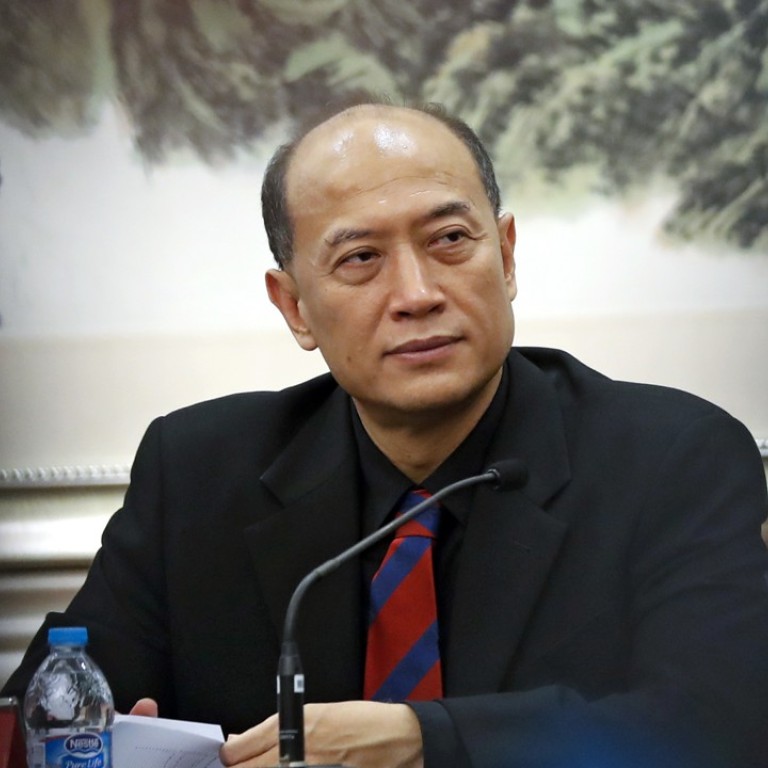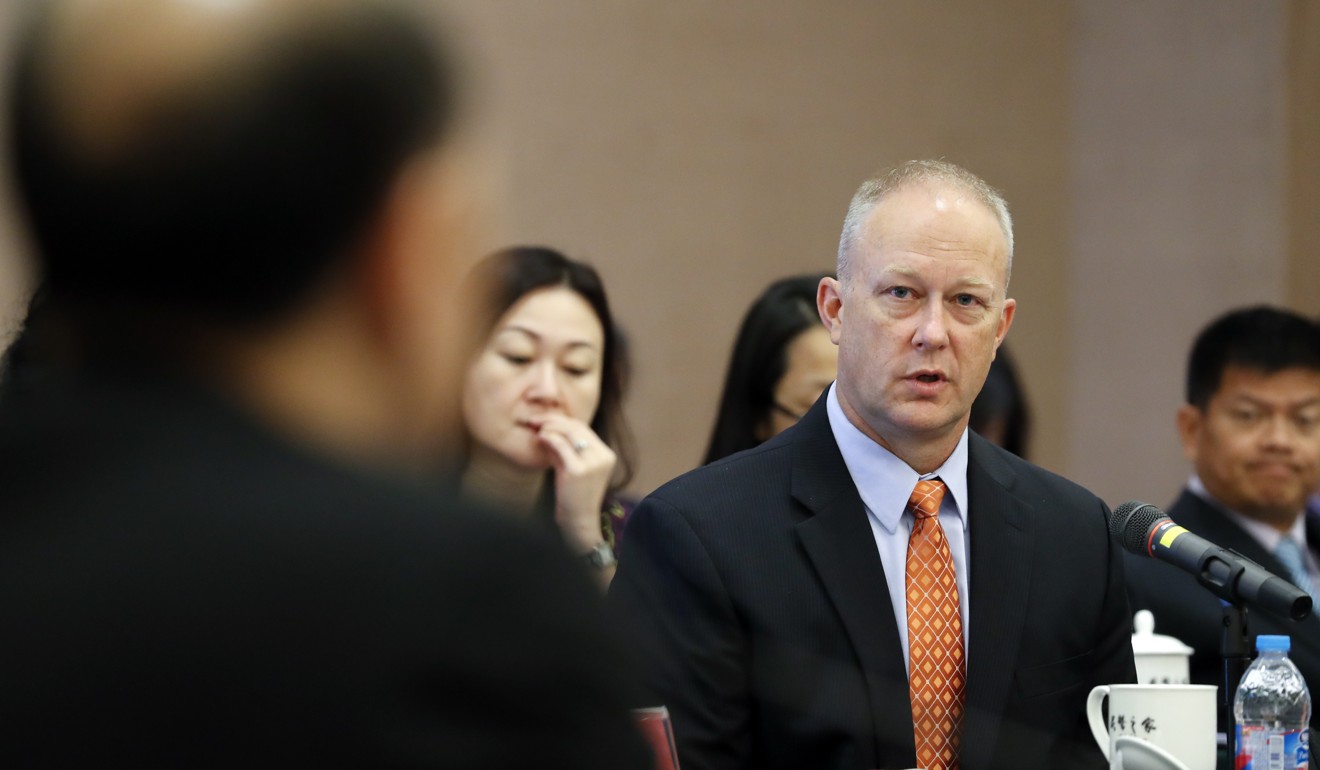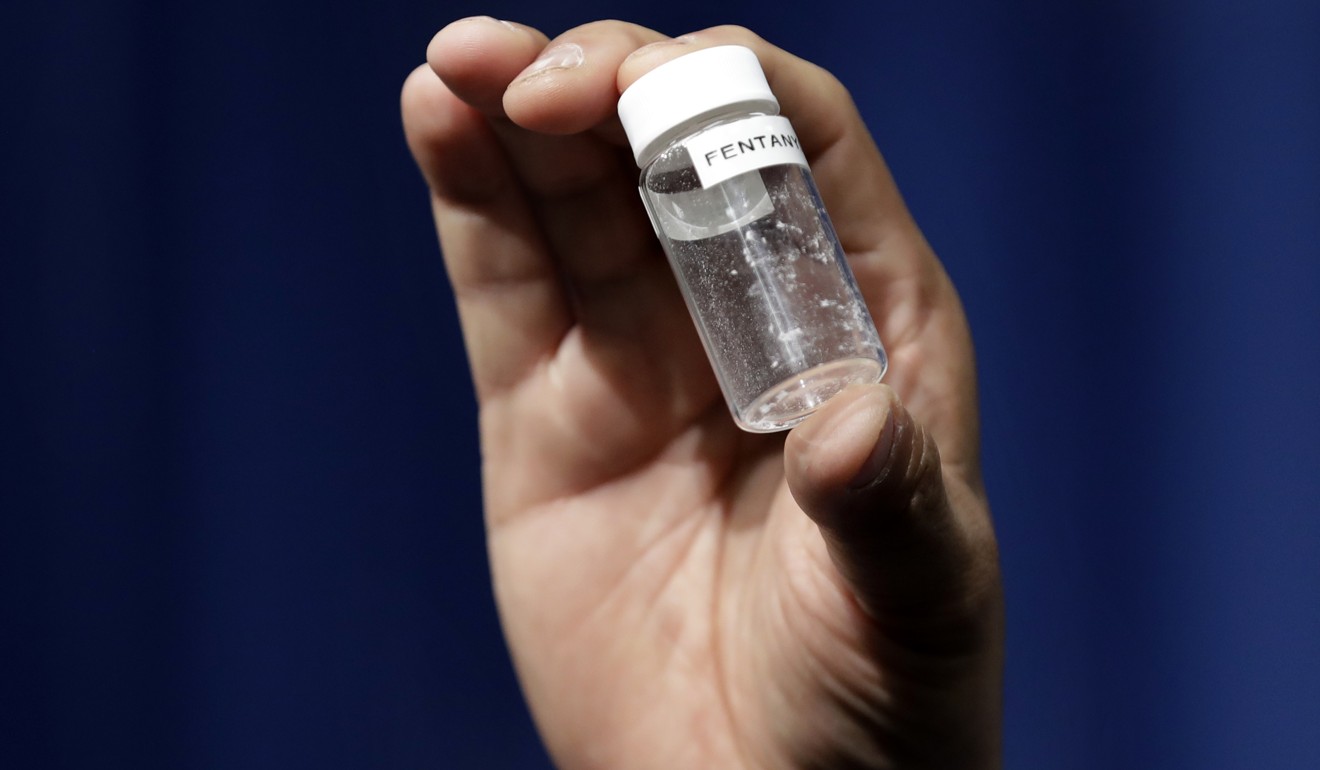
China bans more synthetic opioids blamed for US drug deaths
Under pressure from US, designer drug U-47700 and three others added to China’s list of controlled substances
China will ban a designer drug called U-47700 and three others, following US pressure to do more to control synthetic opioids blamed for fast-rising overdose deaths in the United States, anti-drugs officials said in Beijing on Monday.
In China, U-47700 has until now been a legal alternative to fentanyl and potent derivatives like carfentanil. Its usage has been growing among US opioid addicts.
Last year, the US Drug Enforcement Administration (DEA) listed U-47700 in the category of the most dangerous drugs it regulates, saying it was associated with dozens of fatalities, mostly in New York and North Carolina. Some of the pills taken from Prince’s estate after the musician’s overdose death last year contained U-47700.

The DEA has long said that China was the top source country for synthetic opioids like fentanyl and its precursors, assertions Beijing has said lacked firm evidence. Still, the two countries have deepened cooperation as the US opioid epidemic intensifies.
Deng Ming, deputy director of the National Narcotics Control Commission, said at a press briefing that U-47700 and three other synthetic drugs – MT-45, PMMA and 4,4’-DMAR – would be added to China’s list of controlled substances as of July 1.

Yu Haibin, a division director at the Ministry of Public Security’s Narcotics Control Bureau, said China was making “big efforts” to deal with drugs known as new psychoactive substances. These substances are made by modifying the chemical structures of controlled substances in order to get around the law.
However, as soon as one substance is banned, chemists create slightly different and technically legal alternatives.
“My feeling is that it’s just like a race and I will never catch up with the criminals,” Yu told a news conference. “Actually, we just want to make a breakthrough in dealing with this.”

Addressing the news conference, Justin Schoeman, the Beijing-based country attache for the US Drug Enforcement Administration, said: “I can tell you that when China controls a substance, (new psychoactive substances) or fentanyl-classed substance, it has a huge impact on seizures and availability in the US, so thank you very much.
“The controlling of substances in China certainly saves lives in the US,” he added.
U-47700 is a synthetic opioid, a fast-proliferating class of drugs that have caused thousands of deaths in the United States. In 2015 alone, there were 9,580 deaths due to synthetic opioids other than methadone, accounting for almost a fifth of all drug overdose deaths.

